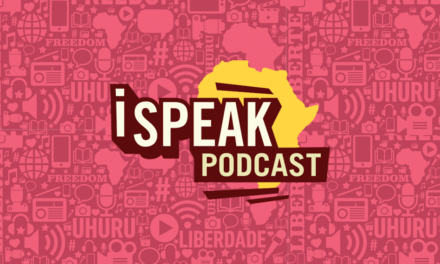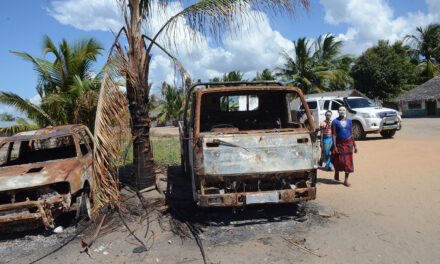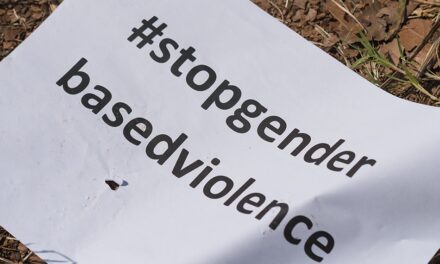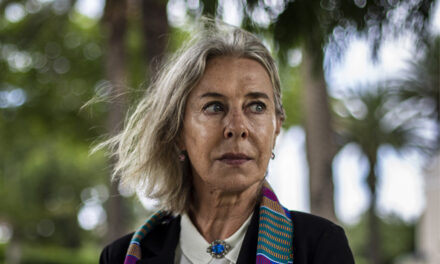
Elusive press freedom: The Gambia, lessons on transition from dictatorship
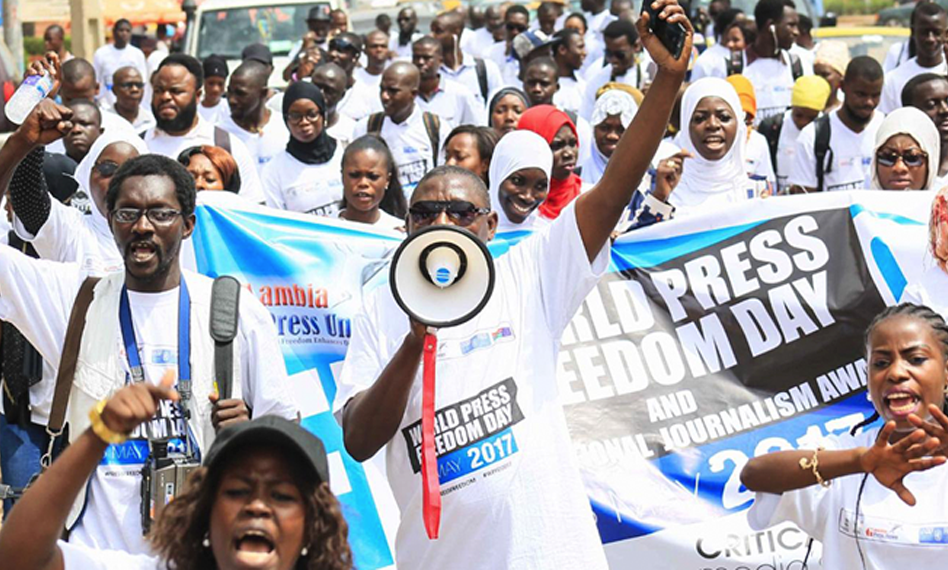
“There was dictatorship, yes, but at least at some point we had some good writers. Now, everyone is talking about press freedom. There is progress, much progress and commendable so, but what is the essence of press freedom if there is no good journalism?”
Abdul Hamdi Adiamoh is a journalist and publisher and knows better than most what it was like working as a journalist in a dictatorship. He was detained and put on trial four times in less than five years. At his fourth court saga, he was ordered to pay a fine of 100,000 Dalasis (approx. USD3100 at the time) for contempt of court. He went into exile soon after being pushed into announcing the temporary closure of his newspaper, Today, a leading national daily at the time.
This was in 2012.
Three years later, President Jammeh suffered a shocking election defeat.
To Adiamoh, the change of government offered an opportunity to return home and a re-launch.
“Sometimes I wonder if this [my addiction to journalism] is sorcery,” he said. “But I am stuck with this trade.”
The media under Jammeh
President Yahya Jammeh was designated a press predator. Under his 22 years of rule (1994-2016), three journalists – Deyda Hydara, Chief Ebrima Manneh and Omar Barrow – died in killings linked to his government. Several dozens were subjected to torture. Some were maimed. One of them, Dodou Sanneh, never recovered fully and died a few years later.
When the media space became constricted, exile offered a way out and for some was the only option left to avoid either jail or serious harm, hence an exodus followed. By 2010, at least 20 % of practicing journalists had fled for their lives. Others were forced to change careers. Among these were the best educated and most experienced of media workers.
A new government, a ray of hope for the media
Following the change of government, media groups and government led by the Gambia Press Union (GPU) and Ministry of Information, respectively, developed a comprehensive strategic framework for media sector reforms. In line with the national democratic transition and transitional justice agenda, the process was supported by the Media Foundation for West Africa (MFWA), International Media Support (IMS) and Gambia Media Support (GAMES). The strategy focused on three main thematic areas – policy and legal reforms, institutional strengthening and capacity development.
There is so much to write home about.
With support from its international partners and local allies, the GPU is now better placed to effectively advocate for press freedom and welfare of media workers.
- There is a Media Council of The Gambia – the first ever self-regulatory body.
- Media law reforms have been underway.
- Bills aimed at getting rid of claw-back clauses and a plethora of statutes that undermine press freedom standards are before the National Assembly consideration.
- An Access to Information Bill is under consideration.
Court rulings made against perpetrators of press freedom and related rights abuses in the previous administration have been executed, bringing hope that impunity will not be tolerated. The Truth Reconciliation and Reparations Commission (TRRC), an ongoing public inquiry into human rights violations that occurred between 1994 and 2016, has lifted the veil of secrecy on the press freedom violations, providing closure for family and colleagues.
As the Commission looks set to wrap up in three months’ time – June 2021 – hopes are that that the recommendations will include reparations for victims, prosecution of perpetrators who ‘bear the greatest responsibility’ and reform of institutions and policies.
- There is a proliferation of media houses.
- Newsrooms seem to have significantly shaken off political and editorial controls.
- Where only one television station existed – state-owned and state-controlled, now there are an additional five – all privately owned.
- Where broadcast of national news was the prerogative of the national radio, now there are dozens of radio stations broadcasting news and interpreting newspaper content in local languages.
The transformation in the online sphere has been more impressive. Where almost all operators were operating from abroad, a significant number now have identifiable offices and reporters and are able to produce verifiable content.
However, the reforms are not as far-reaching as may be desired in some quarters.
Mr Demba Kandeh, a journalism lecturer and researcher, said frustrations like the one Adiamoh is experiencing, in being able to get suitably qualified candidates for his newspaper, lies perhaps, in the approach to the transition from dictatorship.
He said: “If there is one lesson to be learnt from the transition programmes, it is that we placed too much focus on media law reforms at the expense of building the skills and competencies of the people – journalists – who are in fact supposed to be key drivers of the change we seek.
“We forgot that there was a deliberate policy to suppress journalism education; and that those that are coming out of schools need time to make a difference. We did not focus on the immediate and medium-term capacity needs of the media industry. That is why, for me, five years on, the more things change, the more they look the same, especially with respect to the quality of journalism.”
The record of attacks on journalists under the new government is worrying.
Between 2017 and 2019, there were over 15 instances of physical assault on media workers by police and politicians. This is twice more than the last five years under dictatorship.
And as it was under President Jammeh, so it is under President Barrow – the culture of impunity continues to thrive.
One way or another Gambia missed the fruit-bearing benefits of the political transition, as political leaders are now focusing on power retention and not continuing with expected governance reforms, hence the renewed attacks on the media.
In 2019 alone, at least four media practitioners were arrested and detained and two radio stations were unlawfully shut down.
Voted down by legislators aligned to President Barrow, the rejection of the 2020 Draft Constitution is a striking blow to the aspiration of meaningful democratic transition and transitional justice. Providing much broader and stronger guarantees for fundamental rights and freedoms, if adopted, it would have been a strong basis for an entrenched culture of press freedom.
In the face of upcoming presidential elections in December 2021, attention is shifting away from media reforms that are overdue. With the 1997 Constitution – a relic of the former dictatorship in place – the slow pace of security reforms, occasional threats of using anti-press laws against journalists by the presidency and the deep-seated culture of impunity – press freedom in Africa’s newest democracy, The Gambia, is hanging by the thread.

